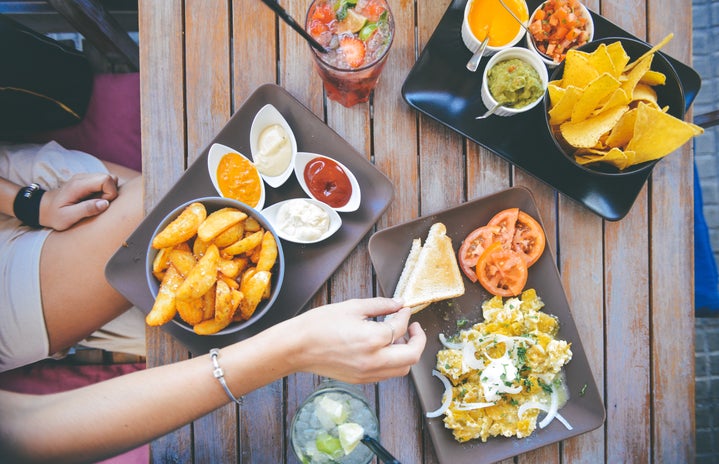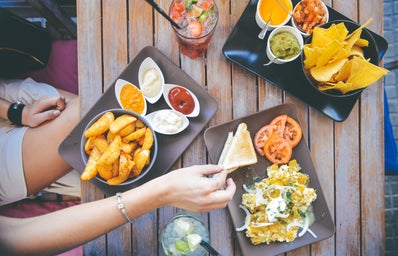Reading the title, you may be confused. Isn’t veganism —the lifestyle, not necessarily the eating habits — the same thing as sustainability? Contrary to popular belief, they are not the same thing. Let’s break it down so we can understand why. Veganism is defined as, “a way of living that attempts to exclude all forms of animal exploitation and cruelty, be it from food, clothing, or any other purpose.” While, and this is the best broad definition of it I could find, sustainability is “meeting the needs of the present without compromising the ability of future generations to meet their needs.”
But in what specific ways do veganism and sustainability clash? Veganism and sustainability are two ways of life that are competing for dominance within environmentally conscious groups of people. I am someone who does their best to adhere to sustainable practices. I use a wooden toothbrush, try to recycle each can and bottle I have, bring my own bags when grocery shopping, and so on. I don’t, however, avoid animal products at all costs.
I think veganism is a committed way of life, and that in a vacuum where everything is straightforward, it would be great. But life is not so simple. Veganism takes a lot of things for granted and doesn’t consider the complications and consequences that life can be. For example, Doc Martens is a shoe brand that is popular for their vegan shoes, which they like to affectionately say are made of “vegan leather.” “Vegan leather” is just a fancier way of saying that they are made out of plastic, specifically polyurethane. And like most plastics, polyurethane is made from petroleum, which is a toxic and unsustainable process in itself. Yes, leather is made of animal skin, which is a product of the meat industry. But it’s important to point out that eliminating the leather industry while having a meat industry means that those skins would just be tossed out. Leather is far more durable, lasts much longer than polyethylene and when it finally is time to throw it out, is not as toxic to the Earth as plastic is.
Shifting the conversation from wearable animal products, let’s talk about eating habits. One of the downfalls of purely eating vegan and taking nothing else into consideration is harming people and the planet in the process. Many don’t consider where the fruits and vegetables they buy from large grocery store chains come from. 78 percent of the farmworkers who pick the fruits and vegetables that end up in large grocery store chains are migrants. Migrant farmworkers perform back breaking labor day after day, are usually paid very little and have insecure housing which has all led to a physical and mental health epidemic for the community.
When there’s an increase in demand for produce, these migrant farmworkers are required to work longer hours. Farmers who want to keep up with this increase in demand will also probably take part in deforestation to gain more land for growing fruits and vegetables. Increases in demand also means that prices go up and people who have depended on those foods for generations can no longer afford them. Not to mention, the high demand in produce has caused countries who traditionally exported them to decrease exports to preserve them for themselves. And in order for these fruits and vegetables to make it to the large grocery store chains, diesel trucks travel hundreds, if not thousands, of miles.
This same rhetoric can be applied to non dairy milk and other products that are made to replace traditionally dairy products. Cashew shells, which are popularly used for milk and other products, contain naturally occurring chemicals called cardol and anacardic acid which burn the hands of the workers who are shelling them. These workers are paid very little, about $3 a day, have no contracts or steady income and many of the time are not given gloves that would prevent burns from happening. Almonds, which are also very popularly used for milk and other products, in order to be produced requires one gallon of water per single almond. Soy beans, used to create soy milk and other soy products, require large amounts of land which is leading to deforestation in South America. (This is a really good site that discusses all of the pitfalls and positives of the different milk alternatives.)
My whole point of this article, besides the painful “there’s no such thing as ethical consumption under capitalism,” is to just use things that will last you longer, watch how much you consume (because too much of anything will always hurt someone) and to shop locally. Local farmers markets, thrift stores, and other mom and pop style shops are the best places to shop because you’re not only contributing to the local economy, you’re also avoiding potentially harmful giant corporations. If you follow the vegan or vegetarian lifestyle, please take the planet and people into consideration too.



